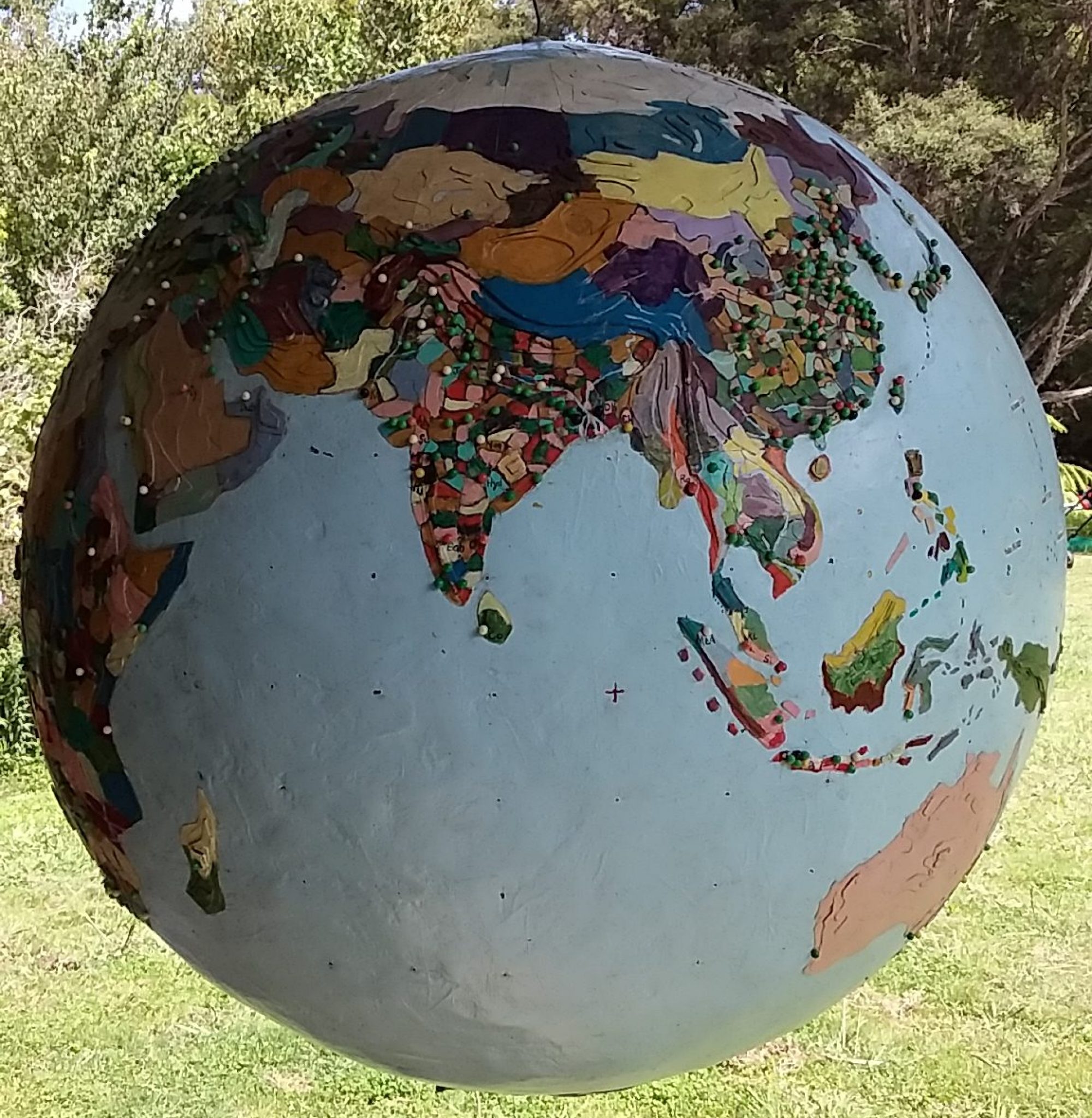In this rapidly overpopulating planet it helps to put the geo-political focus on population instead of focusing, as the media so often does, on celebrities, the nation state, warfare and the global economy. For this I use the lens of the “millisphere” (a region with roughly one thousandth of the world’s population).
As my millisphere analysis of “Palestine” showed, this model can confront nationalism and religion and sometimes meets head-on deeply held beliefs about the nature of the state and god.
Our friends Ross and Marie (ex communards from the Ahu Ahu Ohu) have just returned from visiting “Helvetia” – the old name for Switzerland. With a population of 8.4 million, it is a state that also qualifies as a millisphere.
Ross described it as a “beautiful country, like the Southern Alps on steroids, and very ordered.” As a timber miller and a greenie, Ross was surprised by the number of small sawmills and impressed with the management of their selectively logged mountain forests and the high alpine pastures.
They stayed in a typical village, “bigger than Waverley but smaller than Hawera”. High tech wood burners heating the houses are so efficient that “all you see is a little plume of steam and the air in the valleys is sparkling clean”. This winter the lakes froze over for the first time in decades.
Helvetia is ranked first for protecting the environment and the Swiss are reputedly top recyclers. Switzerland is the world’s wealthiest country per head of population and has the most dense rail network in the EU, 100 percent of which is electrified.
Helvetia has a long history of armed neutrality. There is compulsory military service and all reservists are issued with a gun from age 18 until 34. Referenda to disband the military in 1989 and 2001 were firmly defeated.
Switzerland was the birthplace of the Red Cross and Albert Einstein. It is where LSD, Velcro and the World Wide Web were invented and is the home of Nestle, Novatis, Credit Suisse, FIFA, the IOC and the ILO.
Their GST is 33 percent (compared with 15 percent in NZ). Food and housing are expensive and unemployment is very low, as is their tax rate. Last year a referendum on introducing UBI (universal basic income) was defeated.
Their constitution is that of a federation of “cantons” which, technically, have not handed over power to the centre and they are famous for “direct democracy” and have a referendum for nearly everything. Helvetia has an upper house of representatives from the cantons and a lower house elected from the general population.
In 1920 the League of Nations was formed in Geneva, which, after New York, has the United Nations’ second largest office and is home to the WHO, UNHRC and the WTO; but it was only in 2002 that the Swiss finally decided, by referendum, to become a full member of the UN, on condition that they are exempt from military requirements.
The Swiss were foundation members of the European Free Trade Association but have consistently voted not to join the EU and to retain their own currency. Through bilateral treaties they have minimal trade barriers to the EU and in 2009 joined the Schengen Zone, which allows for free movement across European borders.
Researching this column I talked to Sandra and Azian, both from Switzerland and now residents of Whanganui. I put it to them that “Helvetia” was an exemplar as far a well-run millisphere went.
Neutrality in an increasingly connected world was like balancing the Yin and the Yang Sandra thought; on the one hand maintaining independence and on the other being a global player. Like the USA, UK and Europe, Switzerland is experiencing rising xenophobia and nationalism.
Between 2012 and 2013 Switzerland took in 30,000 refugees. For a country with twice the population as New Zealand they take forty times as many refugees! Twenty percent of the Swiss population are immigrants but in 2014 a referendum to restrict the numbers of new immigrants was narrowly passed.
Switzerland has taken many Tibetan refugees form Northern India, settling then in the high plateau, and the Dalai Lama regularly visits this Tibetan enclave.
Azian thought that their high standard of living wasn’t as green as it appeared on the surface. Selling second hand cars to Poland “isn’t recycling” and the quest for material goods just made the Swiss unhappy and grumpy. “Too much all for one,” she concluded, referring to the Swiss motto: “all for one and one for all.”
